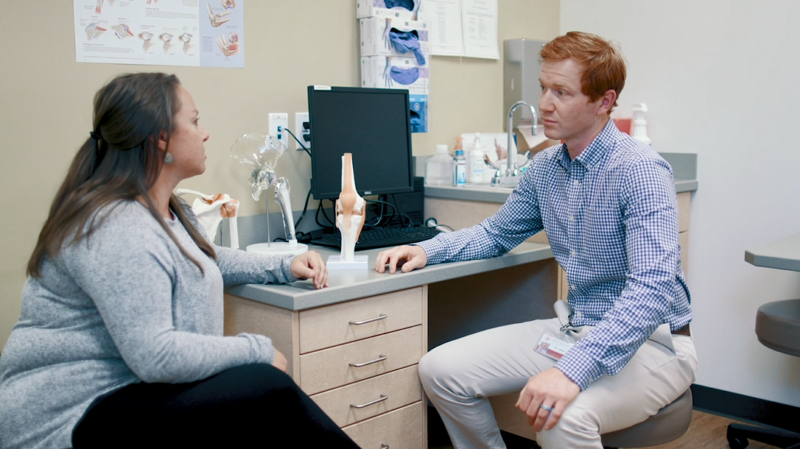
If you or a loved one is preparing for an upcoming surgery, being informed about the surgical procedure is essential. Surgery is a significant decision, especially for orthopedic conditions, and it requires careful consideration and a deep understanding of what the procedure entails, as well as the recovery process. Asking the right questions will not only help ease your concerns but also help you make the most informed decision possible.
Below is a thorough list of important questions to ask your healthcare provider before undergoing surgery.
Understanding the Procedure
Before agreeing to any surgery, it’s crucial to fully understand why it’s being recommended and what it involves.
Why is this procedure being recommended? Are there alternatives?
Your surgeon should be able to explain why surgery is the best option and whether there are non-surgical treatments, like physical therapy or medications, that could provide similar results.
What is the procedure called? How is it done?
Ask for a detailed explanation of the surgical technique, the steps involved, and how the surgery is performed.
Will any more surgery be required in the future?
Understand the long-term outlook after the procedure. Some surgeries may offer a permanent solution, while others may require follow-up surgeries down the road.
Evaluating the Risks and Benefits
Surgery carries risks, and balancing those with the potential benefits is critical.
What are the benefits of this procedure in terms of pain relief and functioning/mobility?
Know how the surgery will improve your life, specifically in terms of pain reduction, increased mobility, and improved functionality.
How long will the benefit last?
Is this a permanent fix, or will you eventually need further intervention? Understanding the longevity of the surgery’s benefits is key to making an informed decision.
What are the potential complications?
Every surgery has risks, so ask your surgeon to explain all possible complications, from the common to the rare.
What can I do to decrease my risk for complications?
Learn what steps you can take—such as improving your health before surgery, quitting smoking, or following a specific diet—to reduce the risk of complications.
What is the success rate for this surgical procedure?
The success rate can vary depending on the surgeon’s experience and the specific type of surgery. Ask for statistics related to your case to get an accurate picture.
What percentage of patients improve following the procedure?
Knowing how many patients experience positive results after surgery will give you a clearer expectation of the outcome.
Preparing for Surgery
It’s important to know how to properly prepare for surgery to minimize risks and ensure the best outcome.
Will I need any tests or medical evaluations prior to the surgery?
Certain medical tests, such as blood work, X-rays, or MRIs, might be needed before surgery. Your surgeon should provide a list of these requirements.
What kind of anesthesia will be used? Are there possible after effects or risks?
Anesthesia is a critical part of surgery. Ask what type will be used (local, regional, or general) and what side effects or risks are associated with it. Also, confirm whether you will meet with the anesthesiologist beforehand.
Post-Surgery Recovery
Understanding what to expect during recovery will help you plan for the weeks and months following the procedure.
Will I have pain following the procedure? What pain relief or pain control measures will I be given?
Ask about the pain management plan for after surgery, including any medications, physical therapy, or alternative methods of pain control.
How long will the recovery take? What are my limitations during recovery?
Ask your surgeon to explain the expected recovery timeline and any limitations, such as lifting restrictions or mobility concerns.
Will I need assistance at home afterward? For how long?
Some surgeries require assistance with daily activities during recovery. Find out if you’ll need someone to help with household tasks or personal care.
What will discharge instructions be?
Knowing what steps to take after discharge is critical. Be sure to receive written discharge instructions and review them thoroughly.
Long-Term Outcomes and Quality of Life
After surgery, it’s important to know how it will impact your daily life in both the short and long term.
Will I need physical therapy?
Some procedures may require rehabilitation to restore strength and function. Ask if physical therapy will be part of your recovery plan and for how long.
When can I return to work? When can I drive my car? When can I resume sexual activity?
Be sure to ask when you can resume everyday activities, especially those that may be restricted for a period of time after surgery.
What kind of implant will be used? What are the outcomes using this device?
If your surgery involves the use of an implant, ask about its longevity, any risks associated with it, and how it will impact your life.
Additional Resources
Ask your surgeon for any further information that can help you feel prepared.
Are there any materials about this surgery that I can review?
Some providers offer printed or online resources. Make sure to ask for educational materials to review at home.
Will there be any follow-up visits after surgery?
It’s important to understand the follow-up process and how many post-surgery checkups are typically required.
Tips for Clear Communication with Your Healthcare Provider
Communication is key when preparing for surgery. Here are a few tips to help ensure that you fully understand everything.
-
Clarify any confusion. If you are unclear about any responses from your provider, don’t hesitate to ask more questions until you gain a complete understanding.
-
Take notes. Bring a notebook or ask a friend or family member to attend the appointment and take notes on your behalf. This can be especially helpful if you feel overwhelmed.
-
Ask for written instructions. Request any printed materials, links, or videos that may help explain the procedure, recovery, or risks.
-
Research your provider. It’s helpful to know more about your surgeon’s experience and qualifications. Our doctors each have profiles that include their education, specialties, and a video introduction to help you get acquainted with them.
Source: https://orthoinfo.aaos.org/en/treatment/questions-to-ask-your-doctor-before-surgery/





